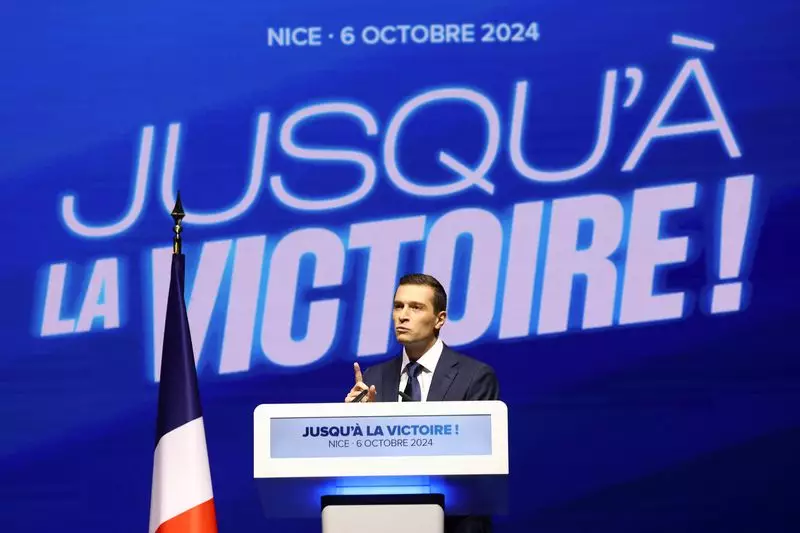The French political landscape is experiencing a heightened state of tension as the far-right National Rally (RN) party prepares to challenge the government led by Prime Minister Michel Barnier. RN President Jordan Bardella recently declared that unless there is a significant shift in Barnier’s stance concerning the party’s budgetary demands, they will support a no-confidence motion against the government. This scenario underscores the fragility of Barnier’s administration and the contentious nature of budgetary discussions in France.
The crux of the issue revolves around proposed budget cuts and tax reforms. The RN is advocating for several key adjustments: they demand that pension increases keep pace with inflation, a reversal of cuts to medication reimbursements, and revisions to the proposed gas tax hikes. Barnier’s recent decision to withdraw a planned electricity tax increase was a step, but it was not enough to appease the RN, who feel their broader economic concerns are being ignored. The Prime Minister’s more conservative approach to pension adjustments has added fuel to the fire, leaving the RN feeling marginalized in these crucial negotiations.
As the situation develops, it is likely to culminate in a showdown that could either solidify or dismantle Barnier’s government. The risk of utilizing emergency constitutional powers to push through a social security financing bill could trigger a backlash, not only from RN but also from leftist factions that might rally around a no-confidence motion. The stakes are immensely high; a shift in power could alter the fiscal policy direction of France amid an already precarious economic environment.
The situation comes with alarming implications for France’s economy. With the possibility of governmental dysfunction, experts like Pierre Moscovici, head of France’s public audit office, have voiced concerns regarding the country’s financial stability. The fear is palpable; a failure to establish a cohesive budget could lead to broader economic instability, deterring foreign investment and exacerbating financial woes within the country. Government spokesperson Maud Bregeon emphasizes the necessity of dialogue and collaboration to ensure that France avoids descent into fiscal chaos.
As these political dynamics unfold, citizens of France are left in uncertainty. The looming threat of a no-confidence motion introduces a climate of instability that could precipitate serious economic repercussions. The RN is positioning itself as a formidable opponent to the current government, one that is prepared to challenge the status quo if their demands are not met. French citizens, business owners, and investors alike are watching closely, as the decisions made in the coming days will not only impact the current political landscape but also lay the groundwork for the nation’s financial future. The outcome hangs in the balance, and only time will reveal whether France can navigate this turbulent political waters without succumbing to chaos.

